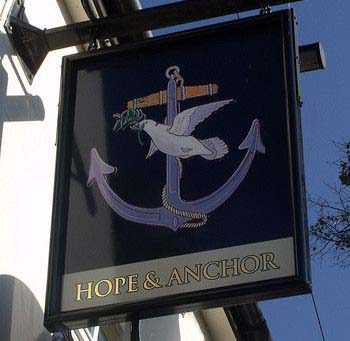Finding Hope: A Depth Psychotherapy Perspective

Early in the New Year, hope can be a very important thing, as Jungians and other /a-midlife-transitions well know.

Hope is a fundamental human psychological need.
So, What Really Is Hope?
Some authorities, such as psychology Prof. C.R. Snyder of the University of Kansas define hope as “the overall perception that one’s goals can be met.” However, authorities such as Prof. Richard Rorty of Stanford have sought to understand hope as about more than just goal setting.
For Rorty, hope is about finding a promise or reason for expecting a better future. For him, as /a-midlife-transitions would agree, hope is not just centered around the success of the particular goals that we in our ego-bound way might set. It’s much more fundamentally concerned with the feeling and belief that life can and will open up in a way that is hospitable to who and what we most fundamentally are.
The New Year’s Resolution as a Symbol of Hope
New Year’s resolutions serve as a particular symbol of hope. The New Year is a time of renewal, but it is also a time of focus on the future. We want to believe that the future will be good and trustworthy. New Year’s resolutions are a concrete and yet symbolic expression of this hope. It’s as if we’re putting ourselves on the line, and saying, “I believe in the future, and here’s my commitment to it” — at least if we’re sincere in our resolutions!

Hope as Anchor
The New Testament aptly describes hope as “the anchor of the soul”. I particularly like this, if we use the word “soul” here, not in some abstract “ghost in the machine” sense, but as referring to our deepest being, our deepest identity. So that, our hope would then be the anchor of our deepest identity. My hope would be fundamentally connected with being at home in my most intimate self.
The philosopher Kirkegaard stated that “The most common form of despair is not being who you are. ” To not live out of who I most fundamentally am, is a basic failure of hope.
So perhaps rather than trying to bring about this or that moral reform or change of habit, our focus with New Year’s resolutions should be on understanding and being more grounded in our own fundamental real identity.
Hope as More than Goals and Willpower
Jung makes some very relevant comments about his experience with clients:
The greatest and most important problems of life are all in a certain sense insoluble. They can never be solved, but only outgrown. This “out-growing” on further experience was seen to consist in a new level of consciousness. Some higher or wider interest arose on the person’s horizon, and through this widening of his view the insoluble problem lost its urgency. It was not solved on its own terms, but faded out when confronted with a newer and stronger life-tendency. It was not repressed and made unconscious, but merely appeared in a different light, and so, did indeed become different.
The most important kinds of change result not from the exercise of our will-power, but through greater encounter with our own nature.

Finding and Living Out of Genuine Hope
Often the journey of discovering our own individuality, accepting it, and living it out can be a source of genuine hope for the individual. The process of /a-midlife-transition is often the best way to foster self-acceptance, and, with it, the sense of hope, and of resilience.
[cta]
PHOTOS: 
 Some rights reserved by ell brown ; Gamma Man ; bjornblog
Some rights reserved by ell brown ; Gamma Man ; bjornblog
© 2013 Brian Collinson, 2238 Constance Drive, Oakville, Ontario (near Mississauga)
